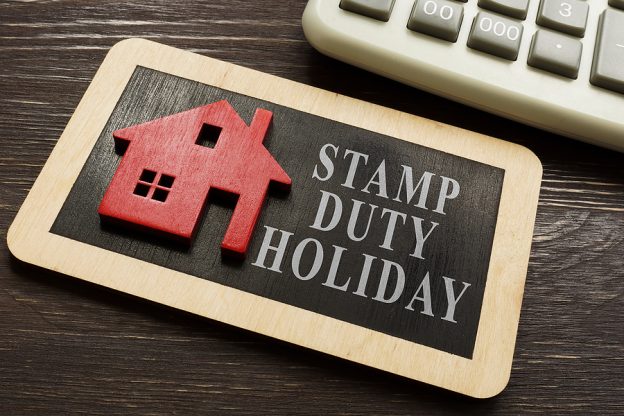
One of the many financial supports put in place to ease the impact of the COVID-19 was the Stamp Duty holiday. This was put in place across the UK in July 2020, to help get the property market on the move again. The last strand of this policy has just ended.
So, what were the effects of this policy and what happens to Stamp Duty, Land Transaction Tax, and Land and Buildings Transaction Tax now?
What is this Stamp Duty holiday policy?
If you weren’t buying or selling a house during this time, this may easily have passed you by. Basically, it meant that the property price thresholds for paying a land tax were increased. Meaning that buyers of properties costing under those thresholds, saved a lot of money not paying this tax.
The maximum saving was £15,000, for people buying property in England or Northern Ireland.
The thresholds increased considerably in each part of the UK:
England and Northern Ireland: from £125,000 to £500,000
Scotland: from £145,000 to £250,000
Wales: from £180,000 to £250,000
You didn’t pay any stamp duty, or land tax equivalent, until the property was worth the new threshold amount.
These holidays ended at different times:
- Scotland, 31st March 2021
- Wales, 30th June 2021
- England and Northern Ireland, 1st October 2021
What’s the impact of these tax holidays?
The individuals buying property made excellent tax savings on their purchases. But the housing market and house prices have also changed in direct response to this policy.
House prices across the UK have risen by at least 7.3%. More specifically, the average house prices in July 2021 were:
- In England and Northern Ireland: £270,973, up 7.3% from £252,432 in June 2020
- In Scotland: £177,166, up 12.7% from £157,191
- In Wales: £187,960, up 11.9% from £168,009
Property market functionality
The whole system of buying and selling houses was not prepared for such a huge increase in volume and speed of housed going under offer. Suddenly conveyancers, surveyors and estate agents were deluged by previously unseen numbers of transactions. Along with implementing the necessary COVID-19 safety protocols, like working from home. This has made the process more difficult, and take longer than expected, for some buyers and sellers.
In June, the last month when you could get the largest saving, there were double the usual number of homes sold numbering 198,000. August’s figures show this has reduced to just under 100,000.
What happens to the cost of Stamp Duty now?
Land tax in all the different UK countries is now going back to pre-pandemic levels. If you’re buying this means you’ll probably need to account for a bigger tax bill, depending on the price of the property.
England and Northern Ireland – Stamp Duty rates by property price
Existing homeowners
- £0 – £125,000: 0%
- £125,001 – £250,000: 2%
- £250,001 – £925,000: 5%
- £925,001 – £1.5m: 10%
- £1.5m+: 12%
First time buyers
- £0 – £300,000: 0% (If property is under £500,000)
- £300,001 – £925,000: 5%
- £925,001 – £1.5m: 10%
- £1.5m+: 12%
There’s an additional 3% surcharge if you’re buying a second home or a buy-to-let property. And 5% surcharge if you’re an overseas buyer.
Scotland Land and Buildings Transaction Tax (LBTT)
Existing homeowner
£0 – £145,000: 0%
£145,001 – £250,000: 2%
£250,001 – £325,000: 5%
£325,001 – £750,000: 10%
£750,000+: 12%
First time buyer
£0 – £175,000: 0%
£175,001 – £250,000: 2%
£250,001 – £325,000: 5%
£325,001 – £750,000: 10%
£750,000+: 12%
There’s an extra 4% surcharge on purchases of second homes or rental properties on top.
Wales Land Transaction Tax
The Welsh Land Transaction Tax (LTT) is the same rate for all homeowners, there’s no concessions for first time buyers. There’s also a 4% extra to pay on second homes and buy-to-let purchases.
All property buyers
£0 – £180,000: 0%
£180,001 – £250,000: 3.5%
£250,001 – £400,000: 5%
£400,001 – £750,000: 7.5%
£750,001 – £1.5m: 10%
£1.5m+: 12%







